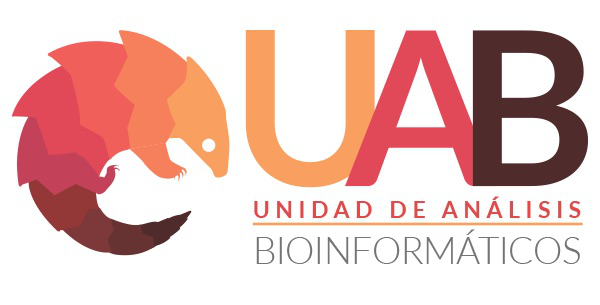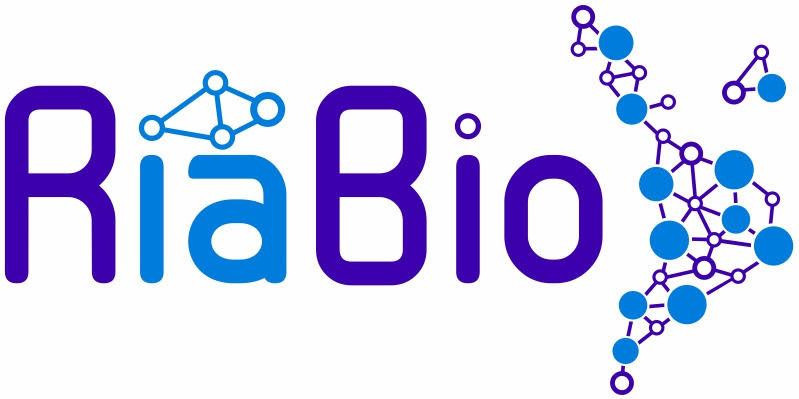Keynote Speakers
 |
María Ávila-Arcos |
Terry Gaasterland |
 |
 |
Rodrigo A. Gutierrez Chile |
João Carlos Setubal Brazil |
 |
 |
Morgane Thomas-Chollier France |
María Ávila-Arcos is an Assistant Professor at the International Laboratory for Human Genome Research in the National Autonomous University of Mexico (UNAM). She completed her undergraduate studies in GenomicSciences at UNAM and later a obtained her doctorate degree in palaeogenomics at the University of Copenhagen in Denmark. She subsequently did a postdoc in population genetics at Stanford University. Her work has focused on the analysis of ancient genomes from a variety of species, including plants, viruses, animals, and humans. She has also studied the DNA of various present-day and ancient populations of the territory that is today Mexico to learn about their demographic and evolutionary history. Her current research interests turn around how the genomes of the Mexican populations have changed, as well as of various pathogens that have infected them, over time. She investigates this using ancient and modern DNA. She also develops pioneering work in the characterization of the African genetic component of the Afro-Mexican population. The work of Dr. Ávila Arcos has contributed to the understanding of demographic and adaptive processes that have given rise to the genetic diversity of the populations of Mexico. In addition, her work on ancient pathogens has traced the routes of entry of some pathogenic bacteria and viruses to Mexican territory during European colonization.
The population history of Mexico: tales from ancient and modern genomes.
Our genomes harbor information about our population history. By studying numerous ancient and modern human genomes, we have unveiled several aspects of our journey expanding throughout the world. In this talk I will share some findings pertaining to the genetic history of the population who have inhabited the territory we today call Mexico. We will explore how the study of genomes have helped us understand who were the first peoples to enter the region, how these diverged and adapted as they encountered new environments, and what was the genetic impact of European colonization.
Dr. Gaasterland trained as a computer scientist with emphasis in databases, automated reasoning and reasoning with uncertain information.
With a Department of Energy postdoctoral fellowship, she transitioned into the application of methods in databases and AI to the interpretation and analysis of genomic sequence and gene expression data. She leads a research program aimed to develop and apply methods to identify genes and the impact of their genetic and evolutionary variation on regulation of transcription and on protein domain structure and function.
Since receiving the Presidential Early Career Award in Science and Engineering (PECASE) in 2000, she has been continuously funded by the National Science Foundation to develop methods in computational genomics, and has participated as PI or co-PI on a series of biomedical grants from the NIH.
She is PI of NEI awards first to sequence and next to analyze variation in protein coding exons genome-wide for 300+ primary open angle glaucoma cases and controls, as a satellite project of both the NEIGHBOR Consortium at the Massachusetts Eye and Ear Institute and the NHGRI Medical Sequencing program.
Dr. Gaasterland’s experience with genome and exome sequencing, software tools to detect horizontally transferred genes in microbes, the management and analysis of large next-generation high-throughput sequencing datasets, and the sequencing and analysis of marine microbial, eukarotic, and human genomes as well as her early career work in deductive databases is reflected in over 90 refereed publications, 79 of which are indexed in PubMed.
Heads or Tails? Systems Biology of Wnt Signaling in Stem Cell Differentiation
Coming Soon
Dr. Gutiérrez is Full Professor and past Chair at the Department of Molecular Genetics and Microbiology, and current Research DIrector at the School of Biological Sciences of the P. Universidad Católica de Chile. Deputy Director of the Millennium Institute for Integrative Biology and Principal Investigator at the FONDAP Center for Genome Regulation. He has received several awards and honors during his career, including the Howard Hughes Medical Institute International Early Career Scientist award, John A. Boezi Memorial Alumnus Award from Michigan State University and the Friedrich Wilhelm Bessel Research Award of the Alexander von Humboldt Foundation. He is one of the founders of the Chilean Society of Plant Biologists and was the first elected president.
Dr. Gutiérrez’s interest is to use systems biology approaches to understand mechanisms to regulate gene expression in response to nitrogen nutrients or metabolite signals in plants using A. thaliana as a model system. He pioneered the combined use of classical experimental biology, functional genomics and bioinformatics approaches to unravel molecular mechanisms of plant form and function. He created tools that facilitate data integration and analysis and enable plant systems biology research. By iteratively combining bioinformatics tools with functional genomics and classical molecular genetics approaches he and his team discovered important molecular mechanisms plants utilize to respond to changes in nitrogen (N) nutrient availability using Arabidopsis as a model system. This is essential for developing strategies that intervene in molecular networks for biotechnological purposes such as improving N use efficiency in plants or modifying the amino acid content of seeds, which are important issues for health, agriculture and human nutrition. It is of paramount importance for modern agriculture to improve crop N use efficiency as world population, food needs and crop use diversification (e.g. for biofuel production) will continue to increase.
Plant life at the extremes in the Atacama Desert
Throughout evolution, plants adapted to flourish in a variety of ecosystems, including extreme deserts. In the current changing climate scenario, it is essential to identify the underlying molecular mechanisms that enable plant resilience extreme conditions. The Atacama Desert, the driest non-polar desert in the world, offers a unique opportunity to explore plant adaptations to extreme environmental conditions. We characterized the three pristine and extreme ecosystems along a natural altitudinal gradient of environmental parameters on the western Andes slopes in the Atacama Desert. We recorded low and unpredictable precipitation patterns, large daily temperature oscillations, low humidity, extremely high radiation levels, as well as soils with consistently low nitrogen levels. Despite these harsh conditions, a diversity of plant species coexist. We sequenced the transcriptome of the 32 most important plant species, representing 14 plant families with diverse phylogenetic origins. Using phylogenomics, we compared the protein-coding sequences of these 32 Atacama species to their 32 closest available sequenced species, and found 265 genes under positive selection in Atacama plants versus their non adapted “sister” species. These genes are involved in various developmental, regulatory and metabolic processes associated with environmental adaptation. We chose a set of positive selected genes and based the available functional characterization of their Arabidopsis orthologs we exemplify their potential role in the adaptation of plants to the extreme Atacama Desert. Our study provides new insights into plant abiotic stress tolerance, and improves our understanding of the highly unique, undisturbed Atacama Desert ecosystem.
João Carlos Setubal is a Professor at the University of São Paulo, Brazil, Department of Biochemistry. Dr. Setubal received his B.Eng. from the University of São Paulo and his PhD degree in Computer Science from the University of Washington, USA. Before joining the University of São Paulo, Dr. Setubal was on the faculty of the State University of Campinas, Brazil (1986-2005) and Virginia Tech, USA (2004-2011). Dr. Setubal's research focuses on the development and use of computational tools for the analysis of omics data, with a focus on microbial genomics. Personal website: http://www.iq.usp.br/setubal/index-en.html
Hunting for species and genera in metagenome datasets
Nowadays there are thousands of metagenome datasets from all kinds of environments and hosts, a prime example being the human gut. When these datasets are based on shotgun (total DNA) sequences, it is possible to learn much about the species present on any given dataset. This is usually done with general-purpose taxonomic classification programs. In this talk I explore a related problem: given a species or genus of interest, we would like to know where such organisms can be found among the thousands of available datasets. An answer to such a question might be useful, for example, to correlate presence of a species of interest and metadata features. It turns out that using a general-purpose taxonomic classifier to address this problem may not be as effective as a more refined approach. I will present preliminary results of such an approach, which has a lower rate of false positives.
Dr. Morgane Thomas-Chollier is Associate Professor in Bioinformatics in Paris, at Ecole Normale Supérieure Paris ENS-PSL, and co-director of the genomics core facility GenomiqueENS. She has obtained her Ph.D in genomics in Brussels, Belgium, followed by a postdoc in Germany, at the Max Planck Institute for Molecular Genetics in Berlin, thanks to a fellowship from the Alexander von Humboldt foundation. She was elected president of the French Society for Bioinformatics (SFBI) for 5 years, and distinguished as Junior Member of Institut Universitaire de France (IUF).
Her work has focused on functional genomics, particularly in regulatory genomics, with the development of bioinformatics tools to study motifs in genomic sequences, and the analysis of ChIP-seq and ChIP-exo data. She is co-leading the develoment of the long-standing RSAT suite (rsat.eu). More recently, she gained interest in single-cell transcriptomics, with a focus on poorly-annotated genomes and Nanopore long-read sequencing. Personal website: http://morgane.bardiaux.fr/
Powering single-cell transcriptomics with long-read Nanopore sequencing
Single-cell RNA-seq (scRNA-seq) has stimulated the understanding of complex processes (e.g. cell differentiation, tumorigenesis) and their underlying cell heterogeneity at a unprecedented high resolution. By providing gene expression at single cell resolution, this technique allows for the identification of new cell subtypes and their corresponding markers. The most common approach targets the 3’ region of the transcripts, further sequenced with short reads technology. On the one hand, this limitation causes a loss of signal in poorly-annotated genomes. On the other hand, this limitation prevents signal to be associated to specific isoforms. We show how long-read Nanopore sequencing, either in bulk RNA-seq or directly in scRNA-seq, can be used to improve short-reads scRNA-seq analyses, for applications in poorly-annotated genomes or to refine the resolution of the analyses to the level of isoforms.











